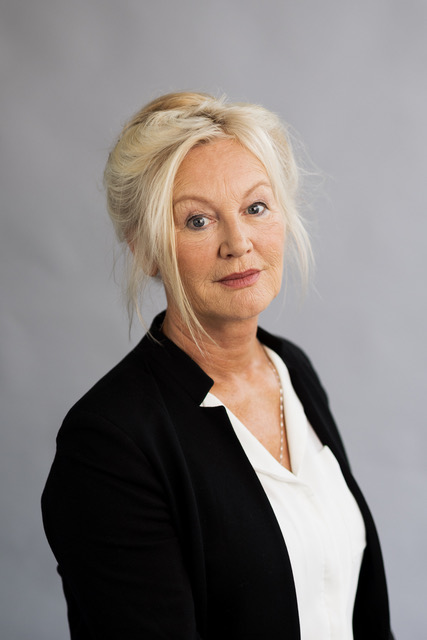
Dr. Joke Hermsen – The Kairos momentum
Time can race or crawl, flow or freeze, fly by or creep agonisingly along – and yet we rely solely on the steady monotone ticking of the clock hands moving around the dial to keep track of the hour. Experiencing time and measuring time seem however to be two different things.
Modern philosophers such as Henri Bergson and Ernst Bloch have described this ‘other’ temporal experience by making a distinction between having time and being time. But also the classical Greek philosophers recognized ‘that time has two faces’, Chronos & Kairos.
Since ancient times, chronological time – in which events are arranged along a horizontal axis, as it were – has been depicted as Chronos, an old man with a long beard holding an hourglass in one hand and a scythe in the other, as he represents the kind of time that reminds us of transience and mortality. The other face of time became Kairos or ‘the god of the opportune moment’. In Greek mythology, he was the grandson of Chronos who cleaves through the course of events like a vertical axis, severing what is fixed and creating flow, which is why Plato considered him the guise of time corresponding to creativity and change. Kairos is depicted as a young, muscular and double-winged god of that era, with a set of scales in his hand – appropriate since his is the time that allows thought to take flight, after we have carefully weighed and considered the right moment for taking the proper action.
The momentum or ‘the right moment of Kairos’ is taken to mean an ‘internal experience of time’. Kairos can grace us ‘at the opportune moment’ with a new insight or forgotten memory. For this reason, the Kairos time is often associated with the concept of birth: being able to start anew or being ‘born’ in the figurative sense.
Writers, artists and musicians often relate to the ambiguous dynamic of time: metre and timing, beat and rest, linear patterns and circular interventions follow one another in alternate succession. Telling a story, whether in word, melody or image, is like breathing. One moment it gallops loudly to the rhythm of the sentences, the next moment it is again incredibly slow. Creating something new often entails being able to mock the clock, as W.H. Auden wrote: “All our intuitions mock/ the formal logic of the clock.”
Art accompanies us into the in-between time of Kairos by drawing our gaze away from the clock and making us receptive to a different, more dynamic and more mindful time. In antiquity, the Greek sculptor Polykleitos wrote: “In every work of art, beauty is made complete by the proper proportion and the proper momentum of Kairos; therefore only he can ensure the proper harmony.” In other words: whereas Chronos determines the quantity of time we have left, as measured by his hourglass, Kairos grants us the qualitative momentum in which we ourselves are time and are able to arrive at new insights or ideas based on that internalisation.
Attention, focus and inner reflection are vital if we are to ignite the spark of such a moment – yet literature, music and art can provide such ignition as well. They represent the heterogeneous, qualitative moments of our lives.
JOKE J. HERMSEN (1961) is a Dutch writer who studied philosophy and literature in Amsterdam and Paris. She wrote her thesis with Rosi Braidotti on the subject of ‘Gender, Art & Nomadic thinking’ in the works of Lou Andreas-Salomé & Nietzsche, Mme de Charriere & Rousseau, Ingeborg Bachmann & Wittgenstein. In 1998 she published a first novel, Het Dameoffer, and edited a collection of essays about Hannah Arendts Political Philosophy, published in 1999 under the title, The Judge & the Spectator, together with Dana Vila. Her novel Tweeduister (Smokefall, 2001) is a portrait of Virginia Woolf and T.S. Eliot; her second historical novel So it’s love (2008), on 18th Century scholars Mme de Charriere & Benjamin Constant, was awarded with the Halewijn Literature Prize. In 2010 Hermsen published a philosophical essay on Time, Stil de tijd (2009) which was reprinted 26 times, so far, and awarded with the prestigious Jan Hanlo Essay Prize 2001. A few years later, her book Kairos. A new engagement, on the Kairotic momentum in art, politics and philosophy, found an even greater audience, and was shortlisted for Best Dutch Philosophy Book. Hermsen also continues to publish fiction, like a serie of three volumes on postmodern life. In 2017 she wrote the Essay for the Month of Philosophy, entitled ‘Melancholy in Unquiet Times’, which was shortlisted for the Socrates Prize and translated into Spanish La Melancolia en Tiempos de Incertidumbre (Siruela), German: Melancholie in unsichere Zeiten, Portugese and Italian. Her last essay ‘Het tij keren’, on the political thinking of Hannah Arendt & Rosa Luxemburg, has been translated into Spanish, Un cambio de rumbo, German, Arabic, Danish and Norvegian; an extended English version of the essay, A Good and Dignified Life, was published in 2022 by Yale University Press. She also wrote a play Rosa & Hannah. The (im)possible revolution, printed bij Bebuquin Belgium.

